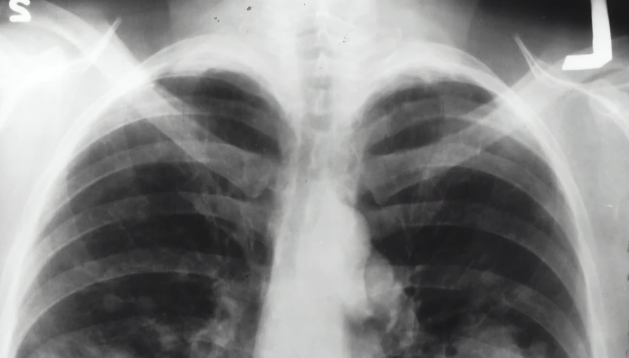Can Vaping Cause Weight Loss
Since many e-cigarettes have nicotine in them, people are wondering if vaping could affect how we manage our weight. This article looks into how vaping might affect weight, including how nicotine influences hunger and metabolism, the possible pros and cons of using vaping for weight control, and other healthier ways to reach and keep a healthy weight.
Can Vaping Cause Weight Loss?
People are curious about how vaping might affect weight loss, especially since many e-cigarettes contain nicotine. Nicotine can help reduce appetite and speed up metabolism, which makes some think it could help with managing weight. However, the research on this is not clear-cut.
Nicotine and Weight Control
Reducing Hunger
Nicotine is known to help control hunger by changing the chemicals in the brain that manage our desire to eat. It specifically impacts two proteins called neuropeptide Y (NPY) and pro-opiomelanocortin (POMC), which play a big role in how hungry we feel. By affecting these proteins, nicotine can make people feel less hungry, which can lead to eating less food.
Boosting Metabolism
Nicotine also speeds up the body's metabolism. This means that even when we're just sitting around, our bodies can burn more calories. Plus, nicotine helps break down fat in the body, which might help with losing weight.
Reference:
https://en.wikipedia.org/wiki/Cigarette_smoking_for_weight_loss
Scientific Research and Proof
Certain research suggests that vaping might aid in weight loss. A 2021 study indicates that nicotine can decrease appetite and the amount of food people eat. Other research points out that it can boost energy expenditure and resting metabolism. These factors can contribute to a reduction in body weight. Some studies involving people support this idea.
However, not all studies agree with this perspective. Some research finds no connection between vaping and weight loss. Laboratory experiments show that e-cigarettes don’t cause significant changes in body weight. Additionally, human studies have varied results.
Psychological and Behavioral Factors
Habit Formation and Lifestyle Changes
Vaping can change how people live, especially for those trying to stop smoking. When someone vapes, it might take the place of other habits, like snacking, because of the way they hold the vape. This change could lead to eating less often, which might affect their weight.
Stress and Emotional Eating
Stress and feelings can really impact how we eat. Many people use vaping to help deal with stress and anxiety, and for some, it might actually help them eat less when they’re feeling down. By making them feel more relaxed, vaping could help reduce the urge to eat when they’re upset.
Health Risks of Vaping
If you're thinking about using vaping to help with weight loss, it's really important to think about the health risks and what could happen in the long run. Even though nicotine might change how hungry you feel and speed up your metabolism a bit, the dangers of vaping are pretty serious.
Long-term Effects of Vaping
Vaping can lead to some serious health issues over time. Breathing in vaporized chemicals can hurt your lungs. Research has shown that vaping can cause chronic lung problems, like bronchitis, and even more serious conditions such as EVALI (E-cigarette or Vaping Product Use-Associated Lung Injury). The vapor can also make your airways irritated, which can result in constant coughing, wheezing, and trouble breathing.
The effects of vaping on heart health are still being looked into, but early studies suggest there could be risks. The chemicals in vape liquids, including nicotine, can impact your blood vessels, which might lead to high blood pressure and increase the chances of heart attacks or strokes. We don’t fully understand the long-term effects yet, but it seems like there’s a higher risk of heart disease.
Reference:
https://en.wikipedia.org/wiki/Health_effects_of_electronic_cigarettes
Addiction and Dependency
Nicotine is super addictive, and that’s true for the nicotine in e-cigarettes too. A lot of people who start vaping find it hard to quit, which can lead to using it more often. This addiction can expose them to even more harmful chemicals over time, raising the chances of health problems.
Young people are especially at risk for becoming addicted to nicotine. Since their brains are still growing, they can be more easily affected by nicotine's addictive qualities. Getting hooked on nicotine at a young age can have lasting effects on brain development and might lead to a lifetime of dependency and health issues.
Healthy Ways to Lose Weight
When it comes to losing weight, there are better and safer options than vaping. Focusing on a good diet, regular exercise, and medical help can lead to lasting results without the serious health risks that come with vaping.
Eating Right and Staying Active
The best way to lose weight is by combining a healthy diet with exercise. Eating a balanced diet gives your body the nutrients it needs and helps keep your weight in check. Adding fruits, vegetables, whole grains, lean proteins, and healthy fats to your meals can boost your overall health and help you shed pounds.
Exercise is just as important. Activities like walking, running, swimming, or lifting weights help burn calories and build muscle. Regular exercise not only helps with weight loss but also makes your heart healthier, strengthens your bones, and improves your mood. The best way to manage your weight is to eat well and stay active.
Medical Help and Therapy
For some people, losing weight might need extra help from doctors or therapists. Talking to a doctor can give you personalized tips on healthy eating and exercise that fit your needs. Sometimes, doctors might prescribe weight loss medications that help reduce hunger or stop fat from being absorbed, which can be useful for those who find it hard to lose weight just by dieting and exercising.
Therapy can also be really helpful, especially for those who struggle with emotional eating or stress-related weight gain. Cognitive-behavioral therapy (CBT) is great for helping people create healthier eating habits and ways to cope. Joining support groups can also provide motivation, accountability, and a sense of belonging, which are important for long-term success.
Will I gain weight when I quit vaping?
When people stop smoking or vaping, some might notice they gain weight, but the reasons for this aren't completely clear. This weight gain usually happens for three main reasons.
More Eating: After quitting smoking or vaping, many people change how much they eat. Nicotine, which is in cigarettes and many vape liquids, can make you feel less hungry. So, when someone stops using nicotine, they might feel hungrier and end up eating more.
Replacing Habits: Some people start snacking more to replace the action of holding a cigarette or vape. This can lead to eating more calories as they try to deal with the cravings and feelings that come with quitting.
Changes in Metabolism: Nicotine can speed up how fast your body burns calories. When someone quits smoking or vaping, their metabolism might slow down a bit, which can make it easier to gain weight, even if they don’t eat a lot more.
Does vaping have side effects on weight?
Vaping doesn't directly change how much you weigh. But, the nicotine in e-liquids can affect your weight in a roundabout way by making you feel less hungry. Even though vape juice has some calories, they are really low and don't have a big effect on your weight.
Does vaping burn calories?
Vaping doesn't actually help you burn calories because it doesn't involve much physical activity. Just using a vape or e-cigarette doesn't use enough energy to make you lose weight, so you can't expect to slim down just by vaping.
On the other hand, nicotine in e-liquids can make you feel less hungry, which might help you eat less and could lead to some weight loss. That's why some people might see a small drop in their weight when they vape, but it's really because nicotine affects their appetite, not because vaping burns calories.
Does nicotine speed up your metabolism?
Nicotine can actually speed up your metabolism, which helps your body digest food faster. This is one reason it can help with weight control. When someone smokes or uses nicotine in vapes, their resting metabolic rate (RMR) goes up, meaning they burn more calories even when they’re just sitting around.
Can vaping cause belly fat?
Some lab studies showed that there isn't a strong link between e-cigarettes and changes in body weight.
Does vaping bloat you?
Yes, vaping can cause bloating in some individuals, similar to smoking. When you vape, you might end up breathing in more air than normal, especially if you take big or lots of puffs. This extra air can go into your stomach and intestines, making them swell up and causing bloating.
When you inhale and exhale vapor, it can also bring air into your digestive system. This is kind of like how smoking can make you feel bloated because of the extra air you take in. While vaping, some people might accidentally swallow air, which can lead to feeling bloated and uncomfortable in their stomach.
Are vapes fattening?
Vaping probably won't make you gain weight. The liquids used in vaping usually have vegetable glycerin (VG) and propylene glycol (PG) in them. Each of these has about 4 calories for every gram. But when you vape, you don't use a lot of e-liquid, especially when you compare it to the calories you get from eating and drinking. So, the calories from vaping are really small and don't have a big impact on your weight.


